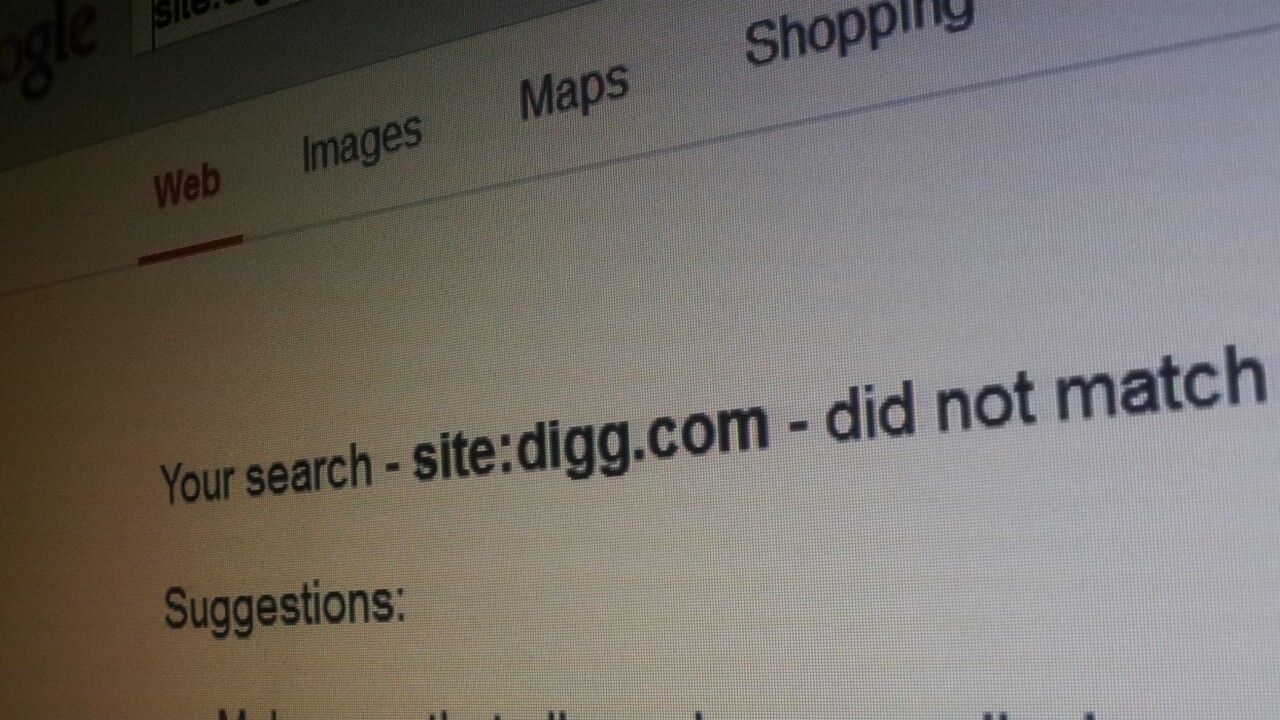
Update: Google has come back to us with the following statement, and it seems it accidentally de-indexed the whole site:
“We’re sorry about the inconvenience this morning to people trying to search for Digg. In the process of removing a spammy link on Digg.com, we inadvertently applied the webspam action to the whole site. We’re correcting this, and the fix should be deployed shortly.”
The folks over at The State of Search have noticed an interesting development regarding Digg on Google Search, via a tweet from Matt Sawyer of Datadial. It seems that the once uber-hot Web property no longer appears on Google Search.
As you can see, a site-specific search reveals, well, nothing. It’s as though Digg.com doesn’t even exist (but it does).

And if you broaden that out to a generic Digg.com search, not a single page shows up from the site itself:

This development falls just a few days after Digg announced plans to build an RSS reader with “the best of Google Reader’s features,” including its API. However, it doesn’t seem as though that would have anything to do with it being de-indexed, given that Google was actively encouraging Reader users to jump ship for other third-party services.
No, it seems much more likely that if it has been deliberately de-indexed that it would be some sort of SEO penalty related to bad links, though a complete de-indexing would seem extreme. That said, only recently Interflora was penalized by Google for trying to game search results using newspaper advertorials without no-follow tags. So it may not be all that far-fetched after all to suggest that Google would punish Digg for any ill-conceived SEO tactics.
This is doubly-interesting in that Digg-founder Kevin Rose joined Google last year, a year after leaving Digg. In the period in between leaving Digg and joining Google, he launched Milk to incubate app ideas, though its first app – Oink – was shutdown just before Rose joined the search giant. Then in May last year, he left the Google+ team to join Google Ventures.
Rose founded and launched Digg in December 2004, which was one of the sites that helped kick-off the so-called “Web 2.0 Era”.
We’ve contacted Google and Digg for comment on the matter, and will update here if or when we hear back.
Get the TNW newsletter
Get the most important tech news in your inbox each week.




